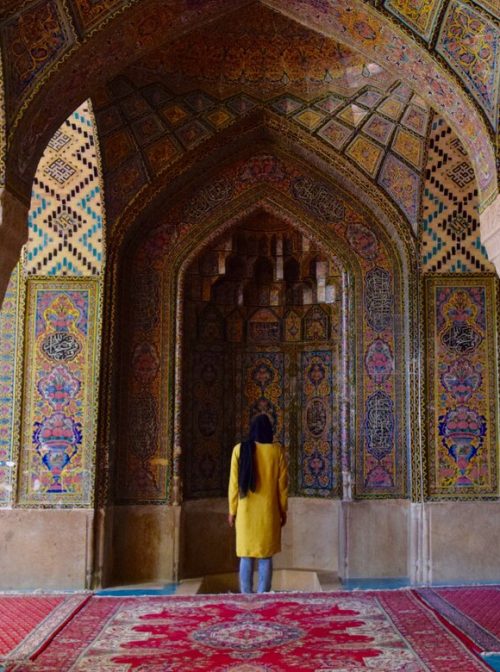The following excerpt is from the book, “Secrets of Divine Love: A Spiritual Journey into The Heart of Islam” by A.Helwa.
It has been edited for length and clarity.
Ramadan is the month of mercy and love, when Allah’s forgiveness descends upon the entire Earth, realigning souls from the fire of separation toward the embrace of the Divine. As the Qur’an says, “Allah intends for you ease and does not intend for you hardship and wants for you to complete the period [of fasting] and to glorify Allah for that to which He has guided you; and perhaps you will be grateful” (Qur’an 2:185).
The month-long fast during Ramadan is not supposed to be a hardship, but to foster gratitude and thankfulness in the believer’s heart, for Allah sent human beings’ divine guidance through the Qur’an. During the month of Ramadan, we believe God rigs this month in our favor, facilitating the turn from creation to the Creator by thinning the veils between Heaven and Earth. It is said that it is in this month that the angels come to Earth and the Spirit descends to our universe, as Allah embraces the world with a divine mercy that intimately encompasses everything (97:4). As the Prophet Muhammad said, “When the month of Ramadan begins, the gates of Heaven are open, the gates of Hellfire are closed, and the devils are in chains.”
Ramadan is not only a time of retreat—it is strength training for the soul.
Ramadan is not only a time of retreat—it is strength training for the soul. The actual test of a successful Ramadan is not just in fasting every day, giving charity, and reading the Qur’an—the test of success is who you are the week after Ramadan is over. We’re not just meant to refrain temporarily from sinful actions, but to uproot the weeds of sin and permanently break the bad habits that turn us away from Allah. It is when we train our hearts, strengthen our willpower, and return to witness God through our body, mind, and soul.
Fasting is not solely about hunger and thirst; it’s about putting God first in every moment. As Imam Al-Ghazali says, “The merit of fasting is not in its hunger, as the merit of medicine is not in its bitterness.” Allah did not send Ramadan to imprison and chain you; it is a divine gift that should inspire and change you.
This month is an opportunity Allah gives us, to strengthen our faith and change our negative habits so that we can live from a place of higher consciousness—not for a single month, but for our entire lives. When we fast for the sake of Allah alone, we are showing Him that as much as we love to consume the pleasures of this world, our love for Him is greater. When we fast with full awareness of who we are fasting for, our hunger and thirst become acts of remembrance and worship of Allah.
The Prophet, peace and blessings be upon him, says, “Whatever is prayed for at the time of breaking the fast is granted, and never refused.” Perhaps this is because when we surrender everything to the Divine, we are not giving up what we have, but becoming receptive to the infinite blessings Allah has given us. Ramadan teaches us how discipline and boundaries don’t restrict our freedom, but actually lay the foundation for true freedom.
Our addictions enslave us. Our attachments to our desires enslave us. Allah only calls us to let go of the things that weigh us down and prevent us from being truly free. The following story is a beautiful demonstration of how learning to let go and detach from our desires leads to freedom: In order to catch monkeys in certain Asian villages, hunters carve a hole in a coconut shell and fill the hole with peanuts. The hole is just big enough for the monkey’s hand to go inside, but small enough that when the monkey makes a fist to grab the peanuts, its hand gets stuck. All the monkeys must do to escape is let go of the peanuts and pull their hand out. However, even as the hunters approach “trapped” monkeys, they do not let go of the peanuts, resulting in their being caught.
When we let go of the lower desires of the self, we discover that the key to escaping our self-made prison has always been in our hands. Ramadan teaches us that the spiritual path is not so much about doing as it is about non-doing. When we surrender and let go of the desires that do not serve us, we come to see that we’re floating peacefully along the eternal river of God’s decree.
A. HELWA believes that every single person on Earth is deeply loved by the Divine. She is an award-winning writer who has inspired hundreds of thousands of readers through her passionate, poetic, and love-based approach to spirituality. With over 15 years of experience writing and speaking on Islam and spiritual development, A. Helwa draws from her personal experiences and traditional sources to help her readers access ‘Divine love in everyday life.’
In addition to “Secrets of Divine Love,” which is currently available in English, French, German, Arabic, Bahasa, and Turkish, Helwa has also published the Secrets of Divine Love Journal as well as an inspirational book of poetic reflections called “From Darkness into Light.” Connect with her on Instagram at @a.helwa_ or authorahelwa.com.




